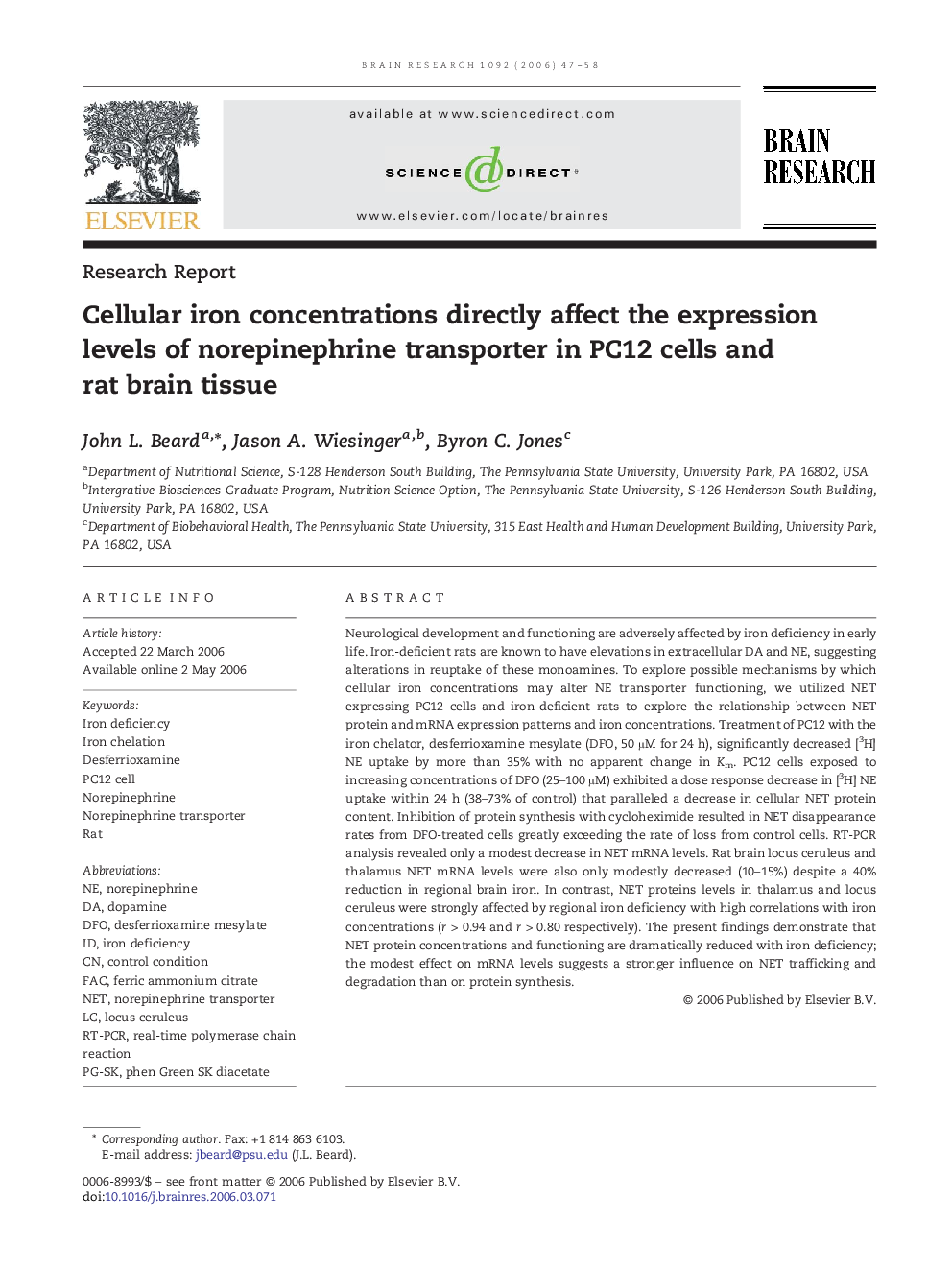| Article ID | Journal | Published Year | Pages | File Type |
|---|---|---|---|---|
| 4332711 | Brain Research | 2006 | 12 Pages |
Neurological development and functioning are adversely affected by iron deficiency in early life. Iron-deficient rats are known to have elevations in extracellular DA and NE, suggesting alterations in reuptake of these monoamines. To explore possible mechanisms by which cellular iron concentrations may alter NE transporter functioning, we utilized NET expressing PC12 cells and iron-deficient rats to explore the relationship between NET protein and mRNA expression patterns and iron concentrations. Treatment of PC12 with the iron chelator, desferrioxamine mesylate (DFO, 50 μM for 24 h), significantly decreased [3H] NE uptake by more than 35% with no apparent change in Km. PC12 cells exposed to increasing concentrations of DFO (25–100 μM) exhibited a dose response decrease in [3H] NE uptake within 24 h (38–73% of control) that paralleled a decrease in cellular NET protein content. Inhibition of protein synthesis with cycloheximide resulted in NET disappearance rates from DFO-treated cells greatly exceeding the rate of loss from control cells. RT-PCR analysis revealed only a modest decrease in NET mRNA levels. Rat brain locus ceruleus and thalamus NET mRNA levels were also only modestly decreased (10–15%) despite a 40% reduction in regional brain iron. In contrast, NET proteins levels in thalamus and locus ceruleus were strongly affected by regional iron deficiency with high correlations with iron concentrations (r > 0.94 and r > 0.80 respectively). The present findings demonstrate that NET protein concentrations and functioning are dramatically reduced with iron deficiency; the modest effect on mRNA levels suggests a stronger influence on NET trafficking and degradation than on protein synthesis.
